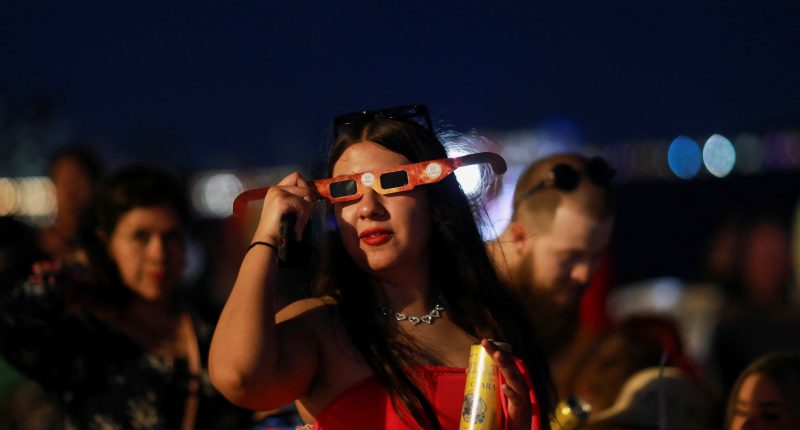SOLAR eclipse viewers need to protect their eyes during the event or risk ruining their vision forever, experts have warned.
On Monday, April 8, spectators across North America will witness one of nature’s most spectacular events: A solar eclipse.
A solar eclipse is when the moon passes between the sun and Earth, completely blocking the sun.
This, in turn, creates a few minutes of total darkness on Earth.
While the event will surely be a sight to behold, gazing at the sun, even briefly without proper eyewear can cause permanent eye damage.
The sun’s rays are incredibly intense, and their photochemical toxicity can damage the retina, a light-sensitive layer of tissue at the back of the eye.
The retina is responsible for converting light into signals that are sent to the brain, allowing us to see.
This damage can cause a variety of vision problems, including blurred vision, blind spots, and changes in color perception.
“In some cases, it’s just partially damaged and it may resolve so that you don’t notice it anymore,” Neil Bressler, a professor of ophthalmology at Johns Hopkins University and editor-in-chief of JAMA Ophthalmology told AFP.
“But in other cases, it can leave a permanent blank spot… and we don’t have a treatment to reverse that. It’s like brain tissue, once you lose it, it won’t grow back,” added Bressler.
Most read in Science
People who have looked at the sun without protection have reported experiencing symptoms such as scotoma, which are blind spots in their vision, and photopsia (seeing flashes of light).
HOW TO SAFELY VIEW THE ECLIPSE
If you find yourself in an area of totality or partial totality, then you can witness this amazing sight.
However, you can’t just look up at the sky without proper eyewear.
You must wear special glasses manufactured or approved by the International Organization for Standardization (ISO).
Eclipse glasses have filters that block out the harmful UV rays from the sun.
THE 2024 SOLAR ECLIPSE
The Total Solar Eclipse of 2024 will start on April 8, 2024, over the South Pacific Ocean.
The first location in continental North America that will experience totality is Mexico’s Pacific coast at around 11:07 am local time.
The path of the eclipse will then enter the US in Texas, and travel through Oklahoma, Arkansas, Missouri, Illinois, Kentucky, Indiana, Ohio, Pennsylvania, New York, Vermont, New Hampshire, and Maine.
READ MORE SUN STORIES
The eclipse will enter Canada in Southern Ontario, and continue through Quebec, New Brunswick, Prince Edward Island, and Cape Breton, Nasa said on its website.
The eclipse will exit continental North America on the Atlantic coast of Newfoundland, Canada, at 5:16 pm local time.











